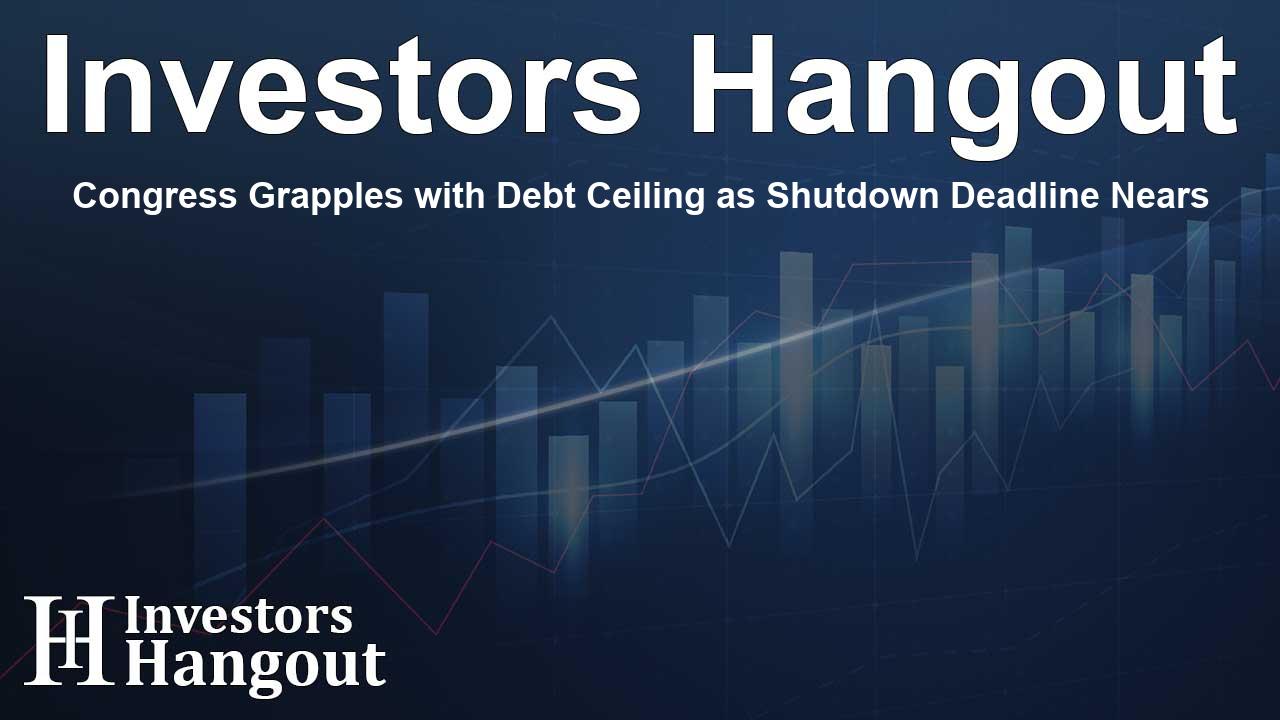Congress Grapples with Debt Ceiling as Shutdown Deadline Nears

Congress Faces Urgency Over Government Funding and Debt Ceiling
As the deadline approaches for a potential government shutdown, Congress is in a rush to finalize a funding measure. This situation has escalated following the rejection of President-elect Donald Trump's call to tie the funding measure to an increase in the nation's debt ceiling.
House Speaker's Strategy Amidst Political Tensions
Republican House Speaker Mike Johnson is navigating a challenging political landscape as he seeks to garner support for a plan that can pass in both the narrowly controlled House and the Democratic-majority Senate. With the uncertainty surrounding government funding growing, Johnson expressed optimism, stating, "We have a plan," as he anticipated votes to take place soon.
Trump's Demands and Republican Divide
In a surprising turn, more than three dozen Republicans turned against Trump's demand to lift the debt limit, a proposal that could escalate the existing debt of $36 trillion significantly. Trump, preparing for his upcoming presidency, urged Congress to permanently eliminate the debt ceiling or extend it to 2029, which would allow for more unfettered government spending. His insistence on a five-year suspension highlights the tension within the Republican Party, especially as some members show resistance to such expansive fiscal policies.
Bipartisan Efforts Hamstrung by Polarizing Figures
A previous bipartisan agreement aimed at addressing the debt ceiling was derailed, largely due to opposition from both Trump and Elon Musk. Despite efforts to craft a revised alternative, this measure ultimately fell short in the House, receiving a disappointing vote count of 174-235. The provisional bill aimed to sustain the current federal budget of approximately $6.2 trillion until March, alongside provisions for $100 billion in disaster relief. However, its failure to incorporate elements that would satisfy Democratic lawmakers proved detrimental to its success.
Market Reactions and Future Implications
The specter of a government shutdown coupled with the looming debt ceiling debate has caused concern in financial markets. Historically, conflicts over the debt ceiling have led to market destabilization, as fears of a U.S. government default trigger significant credit shocks worldwide. Although the current suspension of the debt ceiling is set to end on January 1, lawmakers and analysts believe they can postpone more intense discussions until spring.
President Biden's Position and Legislative Outlook
The White House has firmly opposed the recently reworked bill, signaling that President Joe Biden is unwilling to endorse any proposal that lacks bipartisan support. As time runs short, legislators are under pressure to find a solution that balances the urgent need for government funding while addressing the complexities surrounding the debt ceiling.
Frequently Asked Questions
What is the current situation in Congress regarding the shutdown?
Congress is in a critical state as it attempts to pass a funding measure to avoid a government shutdown. The deadline is approaching quickly, creating a sense of urgency.
How does Trump's demand affect the funding measure?
Trump has called for a significant suspension of the debt ceiling, but this demand has been rejected by a number of Republicans, complicating funding negotiations.
What was the outcome of the bipartisan agreement?
A potential bipartisan deal fell through mainly due to opposition from Trump and Elon Musk, leaving Congress in a difficult position to negotiate a new plan.
What are the market implications of a potential government shutdown?
Past government shutdowns and debt ceiling disputes have led to increased volatility in financial markets, raising concerns about possible credit shocks globally.
What will happen if a funding measure is not passed?
If Congress fails to pass a funding measure, it could result in a government shutdown, affecting federal services and employees until a resolution is reached.
About The Author
Contact Thomas Cooper privately here. Or send an email with ATTN: Thomas Cooper as the subject to contact@investorshangout.com.
About Investors Hangout
Investors Hangout is a leading online stock forum for financial discussion and learning, offering a wide range of free tools and resources. It draws in traders of all levels, who exchange market knowledge, investigate trading tactics, and keep an eye on industry developments in real time. Featuring financial articles, stock message boards, quotes, charts, company profiles, and live news updates. Through cooperative learning and a wealth of informational resources, it helps users from novices creating their first portfolios to experts honing their techniques. Join Investors Hangout today: https://investorshangout.com/
The content of this article is based on factual, publicly available information and does not represent legal, financial, or investment advice. Investors Hangout does not offer financial advice, and the author is not a licensed financial advisor. Consult a qualified advisor before making any financial or investment decisions based on this article. This article should not be considered advice to purchase, sell, or hold any securities or other investments. If any of the material provided here is inaccurate, please contact us for corrections.
